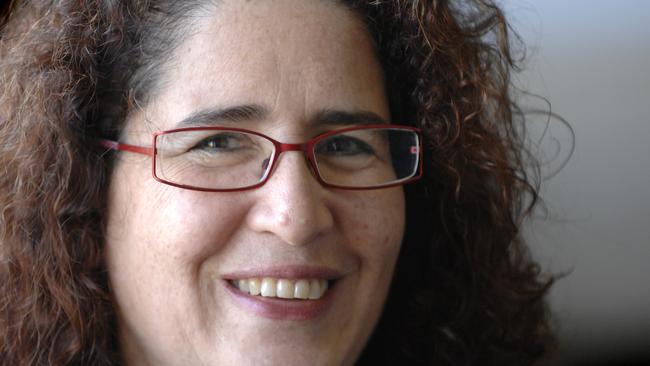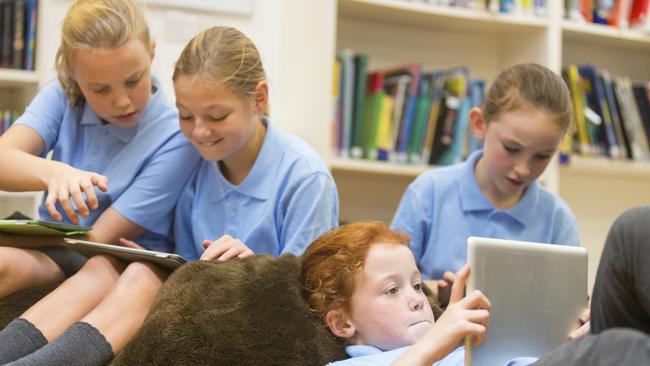Hi-tech teaching helps struggling students, new study shows
“We need to keep our hands on the wheel.’’ As students turn to virtual reality to dissect frogs and study ancient civilisations, an education expert has called for more regulation over the “gamification’’ of education.

Students’ personal data could be hacked through teaching that uses online lessons, facial recognition and gaming, an education expert has warned.
As students dissect frogs using virtual reality and study maths in the metaverse, University of Technology Sydney industry professor Leslie Loble wants greater controls over the quality, safety and ethics of “edtech’’ in schools.
Professor Loble, a former chair of the Australian Education Ministerial Council’s schooling policy group and ex-deputy secretary of the NSW Department of Education, said Australia was falling behind the rest of the world in regulating the “gamification’’ of education.
“The market is booming and there is projected to be a billion students globally using technological learning tools by 2025, largely driven by investment in the US and China,’’ she said. “We need to keep our hands on the wheel. We shouldn’t get too seduced by the technology, but look at what works to support students and teachers better.’’

In a research paper funded by the Paul Ramsay Foundation, Professor Loble warns that the uptake of technology in education could widen the “digital divide’’ between students from wealthy and poor families.
And she calls for better regulation to protect data collected from students in online lessons, exams and assignments.
“Already there’s too much data collected from young people, whether it’s for educational purposes or not,’’ she said. “We need data protection standards over what can be collected, who gets access to it, how it is protected and most importantly how it is used.
“We’ve got to have strong policies and regulation that shape what the technology looks like, and ensure it’s safe and ethical. Is it based on educational science? Is it aligned to our curriculum and values? We need clear guideposts.’’
She said that virtual reality and augmented reality could raise privacy and intellectual property concerns, especially when video captures students without consent or reveals their location.
Despite the concerns, she said edtech could help struggling students by identifying learning difficulties. Artificial intelligence could be used to tutor students online with personalised instruction.
“Adaptive, advanced edtech applications – when developed and used in the right environment – could help to enhance education, especially for vulnerable students who might fall through the cracks,’’ she says in her research report, Shaping AI and Edtec to Tackle Australia’s Learning Divide.
“These tools can be useful to teachers in gathering more precise data for diagnosis and analysis of learning progress and providing proven resources, while other edtech products offer students personalised learning and support, and engaging ways to learn.’’

The report says an edtech product called Dynamilis uses a machine learning algorithm to detect difficulties with handwriting within 30 seconds, while an Australian company, Dystech, uses AI to identify the likelihood of dyslexia.
“Apps can generate detailed reports on a range of specific writing and reading metrics … and can assess student progress over time,’’ the report states. “Certain diagnostic tools can also assign remediation tasks targeted to the individual child’s needs.’’
The report reveals how one primary school in western Sydney lifted students’ literacy skills by using the online Lexia Core5 adaptive learning platform. The program identifies a student’s capabilities and produces a personalised learning path that targets their skill gaps in reading, phonics, fluency, vocabulary and comprehension.
One Year 6 student who could only read and write at a Year 2 level used the program to catch up with classmates within a year.
“Where once the schools Year 5 results were below those of schools with students of similar backgrounds, by 2019 they were outpacing their peers,’’ the report states.







To join the conversation, please log in. Don't have an account? Register
Join the conversation, you are commenting as Logout